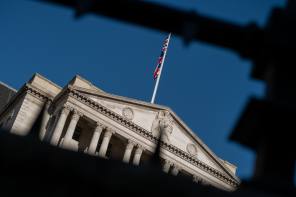

The Bank of England has raised interest rates by 0.5 percentage points.
The base rate of interest is now 1.75 per cent, after the members of the monetary policy committee (MPC) voted 8-1 for the rise.
The central bank said a combination of a tight labour market, and elevated cost and price pressures are risking a longer period of "externally generated" price inflation leading to more enduring domestic price and wage pressures.
The dissenting voice voted for a 0.25 per cent rise.
This is the sixth time in a row the central bank has raised interest rates, in an attempt to quell inflation which sat at 9.4 per cent in June.
The bank said inflationary pressures have "intensified significantly" in the UK and EU since the MPC's last meeting in May.
It now expects inflation to rise to "just over" 13 per cent in the last quarter of this year, remaining at "very elevated" levels throughout 2023.
Despite this, in its report, the BoE said it expects inflationary pressures to dissipate over time, and inflation to return to 2 per cent in 2024.
"Global commodity prices are assumed to rise no further, and tradable goods price inflation is expected to fall back," it said, saying although the labour market may loosen "only slowly" in response to falling demand, unemployment is expected to rise from 2023.
"Domestic inflationary pressures are therefore expected to subside in the second half of the forecast period, as the increasing degree of economic slack and lower headline inflation reduce the pressure on wage growth."
Bailey previously warned that rates could rise by 0.5 per cent after inflation hit fresh records in May and June this year.
Meanwhile, at a hustings yesterday (August 3), Liz Truss said if elected leader of the Conservatives she would look to change the BoE's mandate to ensure it controlled inflation.
Speaking in Cardiff, the foreign secretary said inflation had been caused by supply side shocks and the war in Ukraine, and she wanted to review the mandate of the central bank, which is to maintain inflation at 2 per cent.
It has missed this target since May 2021.
Truss said: “The best way of dealing with inflation is monetary policy and what I have said is I want to change the Bank of England’s mandate to make sure in the future it matches some of the most effective central banks in the world at controlling inflation.”
Truss added: “The last time the mandate was looked at was in 1997 under Gordon Brown. Things are very, very different now.”
sally.hickey@ft.com



